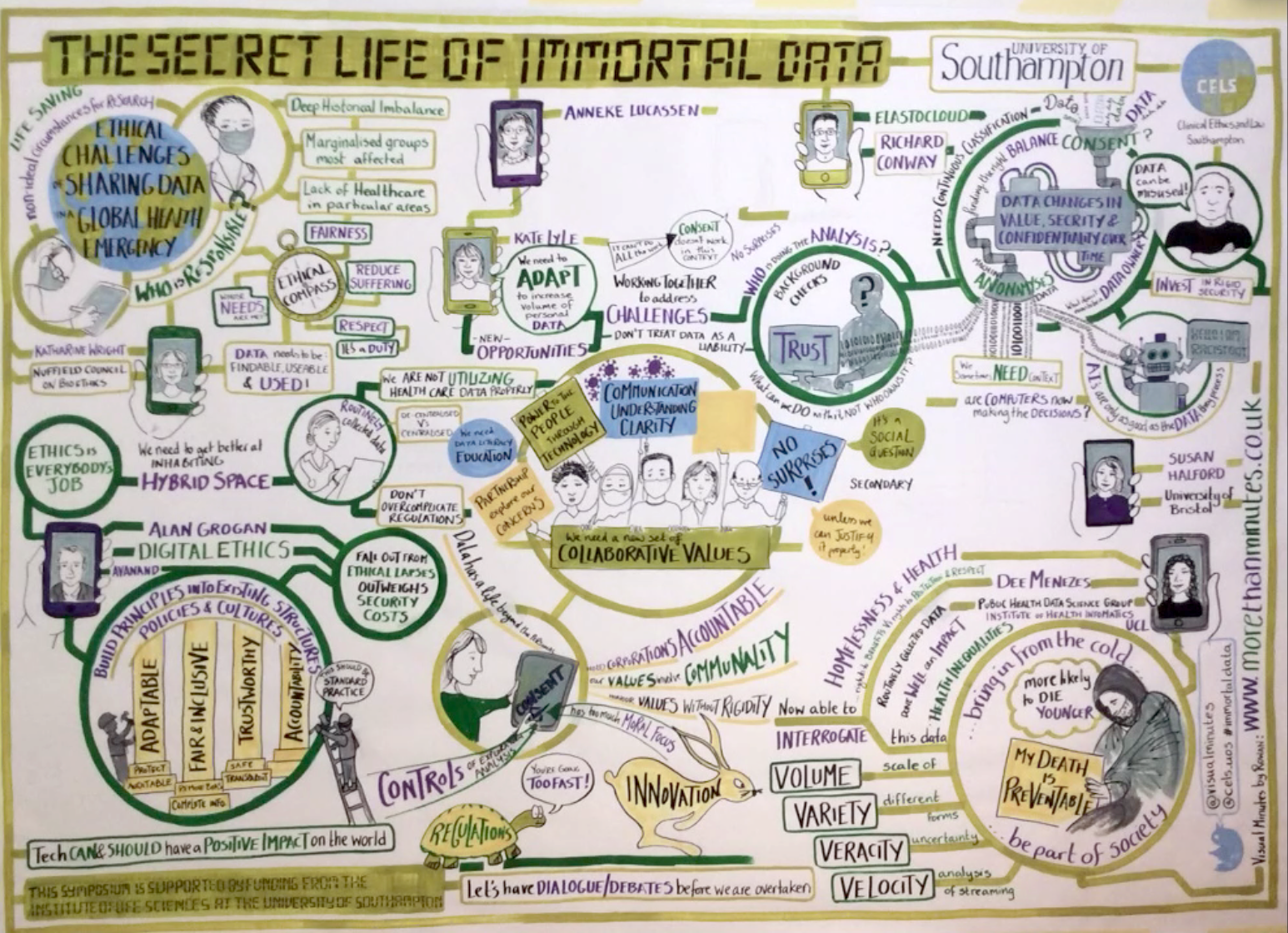Immortal data: How can we change the discussion around data ethics by Anna Kent-Muller
Artist: Rowan Watts from More Than Minutes
Posted on behalf of Anna Kent-Muller
As data exists, with a life often beyond the individual and the present time, we are coming upon new challenges. The ethical and societal issues surrounding data ethics, and the collection of data with uses passed a single hypothesis have not yet been consequented and fully realised yet. This workshop session, and its panel, took the discussion of immortal data to an interdisciplinary research group, crossing academia and industry. Collectively, we worked to breakdown, and re-define the key elements of discussion in data ethics including fairness, transparency, ownership, removing surprise and consent. It was questioned whether our often first question – ‘who owns the data’ – is the right question to ask, or whether one should seek to ask who can use the data, who can analyse it and what can be done with it. Leading to the question, does who owns the data matter?
Similarly, what does it mean to respect the data, and the data participant. Does this mean you need to seek agreement for all your uses of data, or should our job be to call out those who make poor decisions in relation to data use? Similarly, who should be held responsible for being transparent with the public about data, how can we make data a more central part of our education. To move forward with technology, and look at ethics in a world where hypothesis driven research is not the only method of analysing data, we discussed the maturity of change required to our deliberation process. How often individuals are attacked in the news and within the government for speaking out about data usage, we need to break through the sloganisation, and see the issues behind this. How do we overcome the gaps between what we currently know for ourselves, and need to know collectively to have this important debate about data ethics?
The overviews provided in conclusion to the workshop by Susan Halford and Jonathan Montgomery both touched on how we need to understand data ethics as a societal problem, where individual interests and rights need to be protective. There was discussion around whether that meant we should ‘democratise data’, and give power to the people. But more likely, we need to take this discussion into a more public domain. Important discussions around the kind of society we want to live in, not just around what human futures look like with the rapid change in technology, but also the role we see for technology, in our fragile, complex, and unbalanced society.
Organised by Clinical Ethics and Law at Southampton (CELS) and the Web Science Institute funded by an award from the Institute of Life Sciences.

